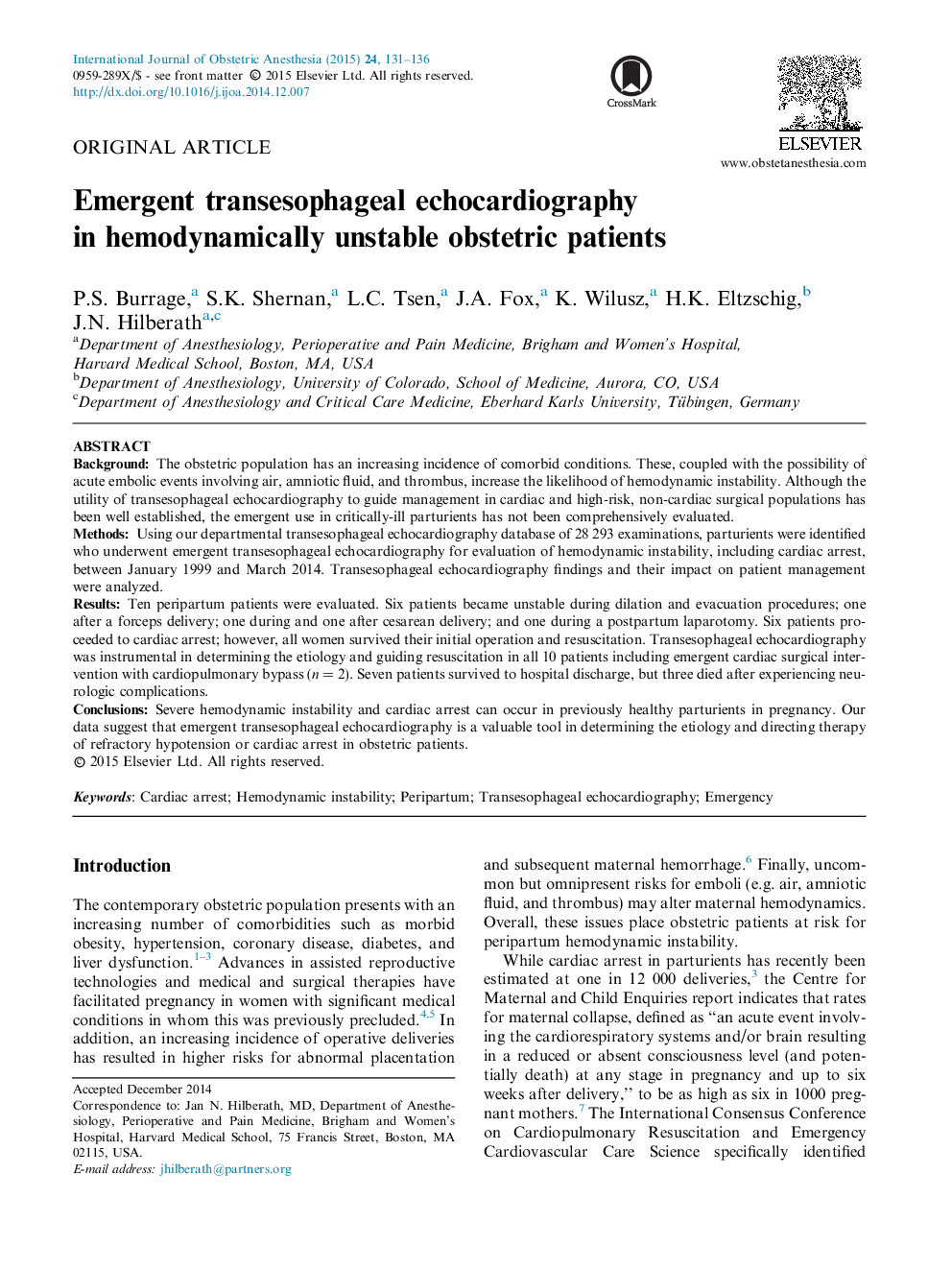| Article ID | Journal | Published Year | Pages | File Type |
|---|---|---|---|---|
| 2757582 | International Journal of Obstetric Anesthesia | 2015 | 6 Pages |
•Transesophageal echocardiography has not been studied comprehensively in obstetric patients in extremis.•This study identified 10 parturients receiving rescue transesophageal echocardiography in a tertiary care center.•The risk of hemodynamic deterioration exists throughout all stages of pregnancy.•Transesophageal echocardiography can aid the diagnosis and treatment of refractory hypotension in parturients.
BackgroundThe obstetric population has an increasing incidence of comorbid conditions. These, coupled with the possibility of acute embolic events involving air, amniotic fluid, and thrombus, increase the likelihood of hemodynamic instability. Although the utility of transesophageal echocardiography to guide management in cardiac and high-risk, non-cardiac surgical populations has been well established, the emergent use in critically-ill parturients has not been comprehensively evaluated.MethodsUsing our departmental transesophageal echocardiography database of 28 293 examinations, parturients were identified who underwent emergent transesophageal echocardiography for evaluation of hemodynamic instability, including cardiac arrest, between January 1999 and March 2014. Transesophageal echocardiography findings and their impact on patient management were analyzed.ResultsTen peripartum patients were evaluated. Six patients became unstable during dilation and evacuation procedures; one after a forceps delivery; one during and one after cesarean delivery; and one during a postpartum laparotomy. Six patients proceeded to cardiac arrest; however, all women survived their initial operation and resuscitation. Transesophageal echocardiography was instrumental in determining the etiology and guiding resuscitation in all 10 patients including emergent cardiac surgical intervention with cardiopulmonary bypass (n = 2). Seven patients survived to hospital discharge, but three died after experiencing neurologic complications.ConclusionsSevere hemodynamic instability and cardiac arrest can occur in previously healthy parturients in pregnancy. Our data suggest that emergent transesophageal echocardiography is a valuable tool in determining the etiology and directing therapy of refractory hypotension or cardiac arrest in obstetric patients.
